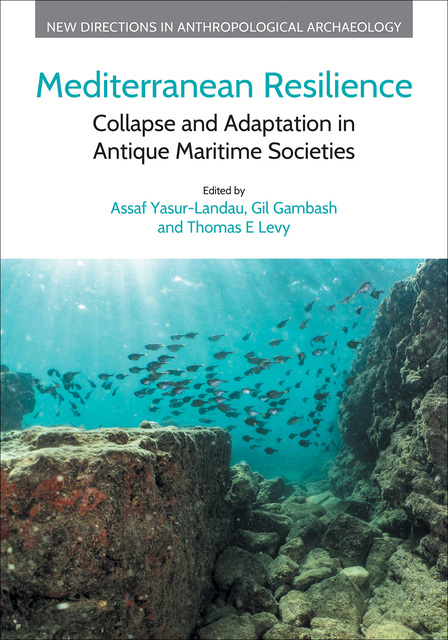Yasur-Landau et al./Mediterranean Resilience, 11. Cultural Resilience in the Hellenistic Southern Levant

Full description
Throughout antiquity, coastal Mediterranean societies frequently adapted their cultural constructs in response to challenges in their routine and changes in their environment. Most of the crises portrayed in this volume and the modes of adaptability devised to meet them would have found representation in the cultural aspects of gradually changing societies. In the Hellenistic Levant, when influential Hellenism followed Hellenistic conquest, two complementary strategies were adopted for securing the resilience of both state and identity. Aimed mostly outwardly, symbols and motifs participating in the universal language of power—such as language, coinage, and official deities—were quickly adopted by elite groups and the administration, aimed to encourage international recognition. Internally, however, traditional elements preceding Hellenism were preserved, and the adoption of change occurred gradually, often resulting in syncretistic creations combining old and new. It is the purpose of this article to analyze this phenomenon through perspectives relevant to adaptation and resilience, focusing on the coastal cities of the Hellenistic southern Levant—namely, Ptolemais-Ake, Dora, Joppa, and Ascalon, as well as on the Hasmonean dynasty.
- typeImage
- created on
- file formatjpg
- file size570 KB
- container titleMediterranean Resilience: Collapse and Adaptation in Antique Maritime Societies
- creatorEleonora Bedin
- isbn9781800503700 (eBook)
- publisherEquinox Publishing Ltd.
- publisher placeSheffield, United Kingdom
- rights holderEquinox Publishing Ltd.
- series titleNew Directions in Anthropological Archaeology
- doi
We use cookies to analyze our traffic. Please decide if you are willing to accept cookies from our website. You can change this setting anytime in Privacy Settings.
